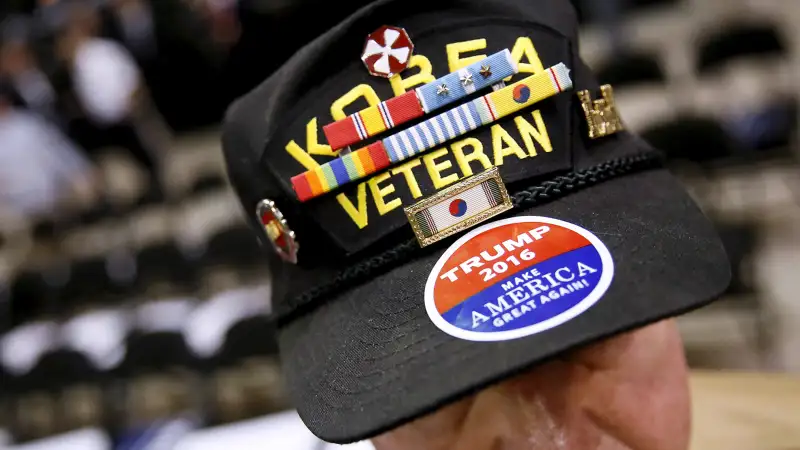New White House Policies Could Put Veterans' Health at Stake

Veterans voted for Donald Trump over Hillary Clinton by a 2-to-1 margin back in November. But a couple of changes that the new administration has underway are likely to put a particular squeeze on former service members' health care.
One particular flashpoint is at the Department of Veterans Affairs. When President Trump made good on his campaign promise last week to freeze federal hiring, the move included thousands of open positions at the VA system -- including hundreds of nurses and doctors, according to USA Today.
Trump's press secretary, Sean Spicer, told reporters last week that at "the VA in particular ... hiring more people isn’t the answer, it's hiring the right people." But David Shulkin, Trump's nominee to head the department, has said in the past the agency needs to fill its thousands of open positions in order to improve the inadequate care and long wait times that have plagued the department for years.
Other analysts agree. A hiring freeze will "just exacerbate the problems they already have," says Carrie Farmer, a health policy researcher at the RAND Corporation.
Not all U.S. veterans receive health care through the VA's Veterans Health Administration, but the massive system does serve about two-thirds of the 9 million veterans who currently qualify. (To be eligible for VA care, a veteran must have a service-related physical or mental health condition.) Trump has proposed solving the VA's problems of long waits and poor care by allowing veterans to see private doctors, with Uncle Sam picking up the tab. But that program -- which would cost as much as $500 billion over 10 years, according to the Committee for a Responsible Federal Budget -- is controversial, with some veterans groups seeing it as partial privatization that could ultimately weaken the VA.
Effects of Obamacare Repeal
The situation for many veterans is compounded by an expected repeal of the Affordable Care Act, a priority for both Trump and the GOP-controlled Congress. "The veterans who aren’t eligible for VA care, if they are losing their insurance, they’ll just be uninsured," says Farmer.
Largely because of Obamacare's expansion of the Medicaid program and marketplace subsidies for lower-income Americans, implementation of the law slashed the number of veterans that were going without any health coverage. The share of non-elderly veterans who were uninsured slid 42% between 2013 and 2015, according to a report from the left-leaning Urban Institute. Veterans' spouses saw a similar decline in their uninsured rate. (Although some 600,000 vets are expected to go without insurance in 2017, the same study found.)
The ACA's passage is also associated with increases in affordability and accessibility of medical care for veterans. Over the same period, the Urban Institute study also found that fewer veterans reported problems paying their medical bills, and fewer reported having an "unmet need."
Mental Health Coverage
There's one other Obamacare issue that's key for former service members. Along with preventive care, the ACA mandates that mental health treatments be included in plan coverage. And almost one in four active-duty service members showed signs of a mental health condition, according to a 2014 study in JAMA Psychiatry.
Even for veterans who receive insurance through their employers, an ACA repeal could eliminate mental health as an essential benefit, notes Farmer. That lost coverage would likely put additional strain on the nonprofit sector, where several groups have been trying to provide free mental health care to vets, as well as on the already overtaxed VA health system. Trump has proposed increasing funding for various mental health programs during his campaign, and his website calls for ensuring access to mental health professionals, but he has made no moves yet on this front.
Indeed, any Obamacare repeal that rolls back the Medicaid expansion could wind up putting more pressure on the VA system -- as well as leaving those who aren't eligible uninsured once again. The number of veterans seeking care at the VA will almost certainly increase, Farmer says -- and just as the agency is no longer able to hire more medical professionals.
A VA spokeswoman said the department is unable to speculate on what would happen to veteran health coverage as a result of both the hiring freeze and possible repeal of the Affordable Care Act.
Farmer says the VA needs to prepare for the possible increase in patients. Yet even that could be challenging, she acknowledges: "It’s hard to plan when there’s so much uncertainty."
